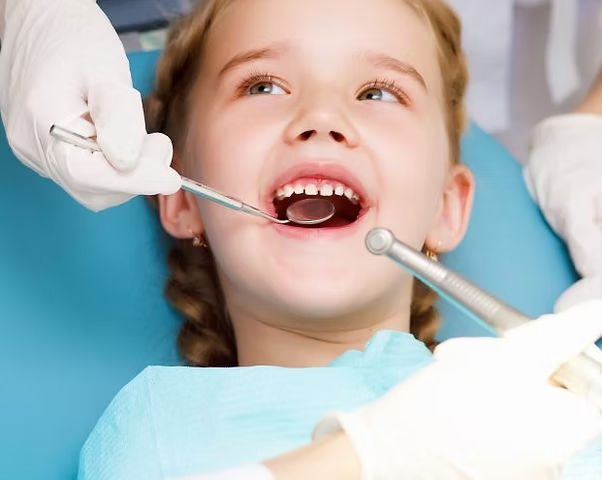
Pediatric dentistry, often referred to as kids dentistry, focuses on the oral health and specific needs of children from infancy through the teenage years. Pediatric dentists are specially trained to care for children’s teeth, gums, and mouths throughout the various stages of childhood. Here’s an in-depth look at the key aspects of pediatric dentistry:
Importance of Pediatric Dentistry
- Early Prevention and Education: Teaching children about oral hygiene from a young age helps establish good habits that can last a lifetime. Early dental visits can also help prevent the onset of tooth decay and other oral health issues.
- Specialized Care: Children have unique dental needs, such as the development of primary (baby) teeth and their eventual replacement with permanent teeth. Pediatric dentists are trained to address these specific concerns.
- Behavioral Management: Pediatric dentists are skilled in managing the behavior of young patients, making dental visits less stressful for both children and their parents.
Common Pediatric Dental Issues
- Tooth Decay (Cavities): One of the most common chronic conditions in children, often caused by improper brushing, sugary diets, and bacteria.
- Early Tooth Loss: Caused by decay, accidents, or insufficient space for permanent teeth.
- Thumb Sucking: Prolonged thumb sucking can lead to misalignment of teeth and other oral issues.
- Dental Anxiety: Many children experience fear or anxiety about visiting the dentist, which can be alleviated through gentle and child-friendly dental practices.
Pediatric Dental Procedures
- Regular Check-Ups and Cleanings: Regular dental visits are crucial for preventive care, allowing the dentist to monitor the child’s oral health and development.
- Fluoride Treatments: Fluoride helps to strengthen tooth enamel and prevent decay.
- Dental Sealants: Thin coatings applied to the chewing surfaces of the back teeth (molars) to prevent cavities.
- Fillings and Crowns: Used to repair cavities and other damage to the teeth.
- Space Maintainers: Devices used when a child loses a baby tooth prematurely, helping to hold space for the permanent tooth to come in correctly.
- Orthodontic Assessments: Early evaluation and treatment of bite and alignment issues, which may involve braces or other orthodontic appliances.
Benefits of Pediatric Dentistry
- Tailored Environment: Pediatric dental offices are designed to be welcoming and child-friendly, often with colorful décor, toys, and activities to make children feel at ease.
- Expertise in Child Development: Pediatric dentists understand the growth and development of children’s teeth and jaws, ensuring appropriate and timely interventions.
- Preventive Focus: Emphasis on preventive care helps reduce the risk of serious dental problems in the future.
- Education for Parents: Pediatric dentists educate parents about their child’s oral health, including tips for brushing, flossing, and dietary choices.
Tips for Parents
- Start Early: The American Academy of Pediatric Dentistry recommends that children see a dentist by their first birthday or within six months after their first tooth erupts.
- Encourage Good Oral Hygiene: Teach children to brush twice a day with fluoride toothpaste and floss daily.
- Healthy Diet: Limit sugary snacks and drinks, and encourage a balanced diet to promote oral health.
- Regular Dental Visits: Schedule routine dental check-ups every six months or as recommended by the dentist.
- Positive Reinforcement: Praise and reward children for good oral hygiene habits and bravery during dental visits.

